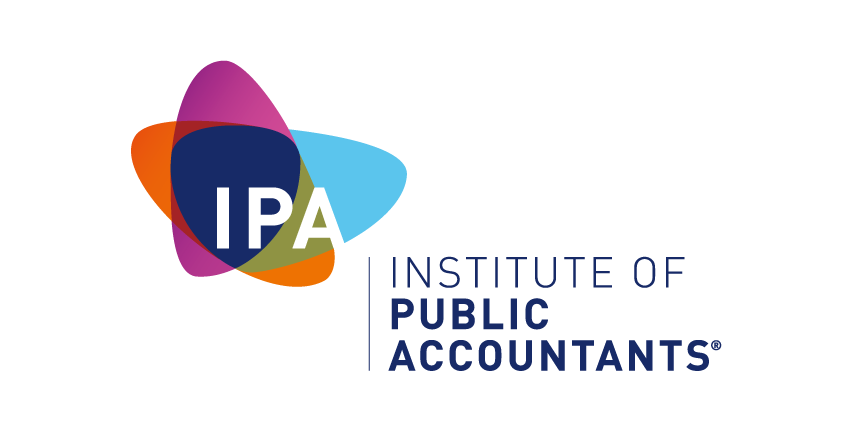-
AUASB Consultation Paper: IAASB’s Proposed Narrow-Scope Amendments to IAASB Standards Arising from the IESBA’s Using the Work of an External Expert Project
The Institute of Public Accountants (IPA) welcomes the opportunity to provide comments on the above Consultation Paper (CP). Overall, IPA supports the proposed narrow-scope amendments in the CP for multiple reasons.
-
AFCA Rules – Proposed amendments
Chartered Accountants ANZ, CPA Australia, the Financial Advice Association Australia (FAAA), the Institute of Public Accountants and the SMSF Association welcome the opportunity to provide feedback to AFCA in response to the Consultation paper on the proposed amendments to the AFCA Rules. We appreciate that some of these changes are being made to reflect changes to the law or to address the historical nature of the Legacy complaints provisions. We also recognise that some of these changes are sensibly being done to provide AFCA with additional powers to deal with AFCA members and third parties who are not complying with the expectations of AFCA. These are relevant matters that we believe should be addressed.
-
Five Productivity Inquiries
The Institute of Public Accountants (IPA) welcomes the opportunity to make a submission in relation to the Productivity Commission’s five productivity inquiries. We welcome the Government’s commitment to lifting Australia’s productivity and the commissioning of these inquiries. Fundamental reforms aimed at boosting the rate of productivity growth are overdue. We urge the Government to take a longer-term view based on a clear, determined and well communicated path for the Australian economy and Australian society.
-
Australian National Audit Office (ANAO) Performance Audit – Australian Securities and Investments Commission’s (ASIC) regulation of registered company auditors
The Institute of Public Accountants (IPA) is one of the three professional accounting bodies in Australia, having been established in 1923, and represents over 50,000 accountants, business advisers, academics, and students throughout Australia and internationally. Three quarters of the IPA’s members work in or are advisers to small business and Small to Medium Enterprises (SMEs). IPA welcomes the opportunity to provide comments on the ANAO’s Performance Audit on the effectiveness of ASIC’s regulation of registered company auditors (RCA).
-
IGTO 2026 Draft Workplan for Systemic Reviews
The Institute of Public Accountants (IPA) welcomes the opportunity to make a submission in relation to the IGTO’s 2026 draft workplan for systemic reviews. The IPA is one of the three professional accounting bodies in Australia, representing over 50,000 members and students in Australia and in over 100 countries. Approximately three-quarters of the IPA’s members work in or are advisers to small business and small to medium enterprises.
-
APESB ED 02/25 Proposed Revisions to APES 110 Code of Ethics for Professional Accountants (including Independence Standards) Addressing Using the Work of an External Expert
The Institute of Public Accountants (IPA) welcomes the opportunity to provide comments on the above Exposure Draft (ED). Overall, IPA supports the proposals in ED 02/25 to amend the existing APES 110 Code of Ethics for Professional Accountants (including Independence Standards) (the Code) to guide professional accountants in both business and public practice when using the work of an External Expert.
-
APESB ED 01/25 Proposed Australian Ethics Standards for Sustainability Assurance and Other Revisions to the Code
The Institute of Public Accountants (IPA) welcomes the opportunity to provide comments on the above Exposure Draft (ED). Overall, IPA supports the proposals in ED 01/25 to amend the APES 110 Code of Ethics for Professional Accountants (including Independence Standards) (the Code) to incorporate new ethical standards for Australian sustainability assurance practitioners and professional accountants relating to sustainability reporting and assurance.
-
Payday super – exposure draft legislation
The Australian Bookkeepers Association, Chartered Accountants Australia and New Zealand, CPA Australia, the Financial Advice Association of Australia, the Institute of Certified Bookkeepers, the Institute of Public Accountants, the SMSF Association and The Tax Institute (together, the Joint Bodies) write to you as the peak professional accounting and tax practitioner bodies in Australia representing the tax profession, the superannuation sector and financial advisers. We welcome the opportunity to make a submission to the Treasury regarding its consultation on the package of exposure draft legislation on payday super (PDS).
-
Review of Tax Regulator Secrecy Exceptions
CPA Australia, Chartered Accountants Australia and New Zealand and the Institute of Public Accountants (we/our/joint bodies) together with our respective affiliate bodies represent over 350,000 professional accountants in Australia, New Zealand and around the world. We submit our comments on the Review of Tax Regulator Secrecy Exceptions (Review) consultation paper (consultation paper).
-
Proposed Financial Institutions Supervisory Levies for 2025-26
CPA Australia, Chartered Accountants Australia and New Zealand (CA ANZ) and the Institute of Public Accountants (IPA) (“the Joint Accounting Bodies”) welcome the opportunity to provide a submission to Treasury on the Proposed Financial Institutions Supervisory Levies for 2025-26 Discussion Paper (“the Discussion Paper”), currently available for consultation. Together, the Joint Accounting Bodies represent over 350,000 professional accountants in Australia, New Zealand and around the world. Our members work in diverse roles across public practice, commerce, industry, government, and academia. We make this submission on behalf of our members and in the broader public interest.
